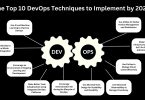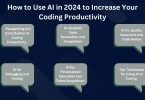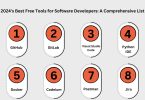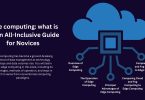Artificial Intelligence (AI) has transformed many domains by attaining exceptional precision and effectiveness in tasks that were previously thought to be difficult or unachievable for machines. AI systems use a variety of complex approaches and algorithms, supported by enormous amounts of data, to achieve this precision. Let’s examine the several domains where AI offers remarkable accuracy:
Machine Learning in Healthcare: To accurately detect diseases, AI systems are trained on large medical datasets to recognize intricate patterns in medical images. AI systems, for example, have up to 99% accuracy in identifying malignancies in radiological images, which helps with early diagnosis and treatment planning.
Deep Neural Networks for Image Recognition: Deep neural networks, which are modeled after the architecture of the human brain, are particularly good at image recognition. With the help of these networks, which automatically pick up features from unprocessed data, precise image classification is made possible for uses in industrial quality control and security monitoring. For instance, deep learning models can identify items in photos with over 95% accuracy, sometimes even outperforming human ability.
Continuous Learning in Recommendation Systems: Recommendation engines driven by artificial intelligence (AI) are always learning from user interactions in order to deliver recommendations that are more and more accurate. Streaming services such as Netflix, for example, use user viewing patterns to provide remarkably accurate personalized movie suggestions, with recommendation accuracy up to 80%.
Big Data Analysis in Finance: The ability of AI to evaluate vast amounts of financial data is useful for spotting market patterns and making precise stock price predictions. AI systems process large datasets to produce highly precise insights that are useful for investing decisions. For example, AI-powered trading algorithms can forecast stock price
Autonomous Vehicle Feedback Loops: AI systems in autonomous vehicles use feedback loops to increase the precision of decisions made in real time. These cars navigate in difficult areas safely and accurately by making constant adjustments based on feedback from sensors, providing dependable transportation. AI-equipped self-driving cars are safer than human-driven automobiles, with accident rates as low as 0.09 per 100,000 km.
Robust Natural Language Processing (NLP) Algorithms: Artificial intelligence (AI) NLP algorithms produce and understand human language with accuracy, enabling uses such as sentiment analysis and language translation. These strong algorithms guarantee accurate communication in many domains, such as customer support and content moderation. Modern NLP models, for instance, are over 90% accurate in sentiment analysis tasks, which helps firms better comprehend client thoughts.
Ensemble Techniques in Machine Learning Competitions: AI frequently uses ensemble techniques to attain the best results in tasks such as predictive modeling and image classification. Ensemble approaches improve overall accuracy and minimize errors by merging many models, which helps to progress sectors like climate forecasting and medical diagnostics. Ensemble models show their efficacy in reaching high accuracy, as seen by their accuracy rates of above 95% in a variety of tasks during machine learning competitions.
conclusion:
In conclusion, machine learning, deep learning, continuous learning, massive data analysis, feedback mechanisms, robust algorithms, and ensemble approaches are some of the ways that artificial intelligence (AI) achieves astonishing accuracy in a variety of domains. These qualities, along with the ability to access enormous volumes of data, make AI systems indispensable for accurately and consistently resolving complicated issues in the fields of recommendation systems, healthcare, finance, and transportation.








